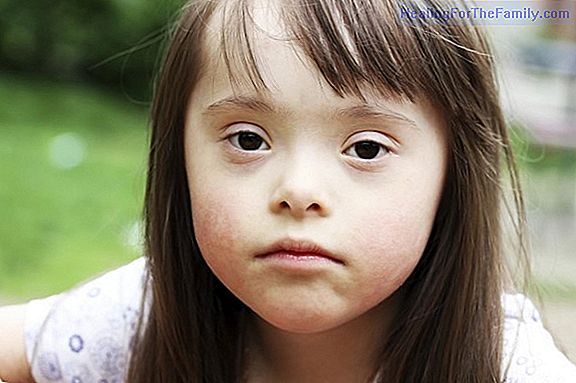How food affects children's mood swings
Diet can contribute to putting our little ones in better or worse mood, to improve or worsen their behavior, to stimulate them, to make them more active or even to get them calm down and relax This is how food affects the mood swings of children. Food affects the mood swings of children It is eviden
Diet can contribute to putting our little ones in better or worse mood, to improve or worsen their behavior, to stimulate them, to make them more active or even to get them calm down and relax This is how food affects the mood swings of children.
Food affects the mood swings of children

It is evident that food can not be the only treatment if there is a behavioral problem, but simple changes in diet manage to stimulate changes in brain structure and in connections neuronal that can contribute to positive or negative alterations of the behavior of the smallest.
Research in this field, the field of food and neuroscience, is not only recent, but also advances almost every day, so, although not all the mechanisms are known, the clues are most attractive. Since the food affects the mood swings of children, let's see 5 proposals that not only improve the mood, but are beneficial for the health of children in general:
- Carbohydrates are our friends, you just have to choose the most appropriate. Simple carbon hydrates increase energy immediately, sudden, so children often activate in an uncontrolled way when they consume excessively. However, complex carbohydrates, absorbed much slower, release energy gradually, being very beneficial to the body. In addition, complex carbohydrates help the absorption of tryptophan, a non-essential amino acid but which is directly involved in the synthesis of serotonin, the chemical responsible for relaxation and maintaining balance in mood.
- Offer them omega 3 fatty acids. Fish, with its content in these fatty acids, in addition to vitamin D, stimulates the production of serotoninwhich helps maintain a balanced mood. In addition, a limited supply of omega 3 fatty acids, also present in nuts and some seeds, negatively affects some routes that synthesize neurotransmitters in the brain, although their involvement in negativism and apathy is still unclear.
- Do not let too many hours pass between your meals. It seems that the continued contribution of glucose in the brain favors the good functioning of all neuronal connections, which translates into a better mood.
- Stimulates physical activity, better outdoors. Although it is not clear what are the minimum levels that influence a negative result, it is scientifically proven that the lack of vitamin D, which is synthesized in the body with the help of sunlight, has an important influence on mood, increasing pessimism and reluctance. Vitamin D participates in the synthesis of serotonin in the brain, hence its direct relationship with the good or bad mood of our children.
- Offers foods rich in selenium. A deficiency in selenium is related to a worse mood, given its participation in many chemical reactions in the brain, so a diet rich in nuts, seeds, fish and legumes is beneficial to ensure its contribution.












